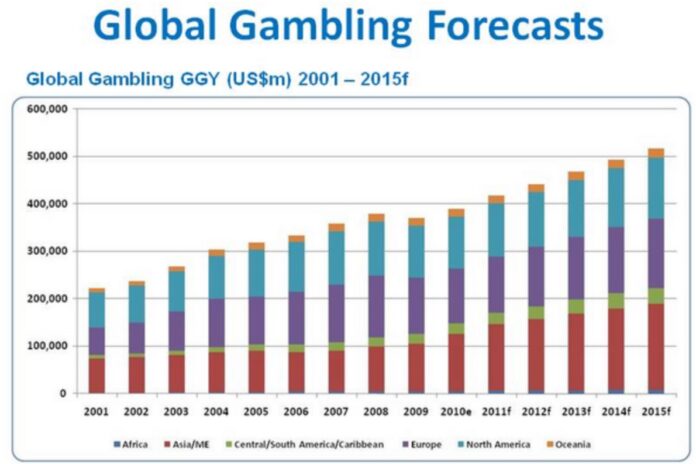Are you looking for an opportunity to make money with online casinos? Understanding the legal landscape of gambling is key.
This article will explore the challenges and opportunities present in this environment, arming you with the information necessary to make informed decisions.
Overview of the Legal Landscape of Online Casinos
The legal landscape of online casinos is in a state of flux, with different jurisdictions having different laws and regulations regarding these establishments. Generally speaking, the legality of online casinos derives from the gambling legislation in place in a particular jurisdiction. Online gambling laws vary greatly from country to country, as each nation has its own framework for regulating gaming.
For example, the French regulatory authority, ARJEL, oversees the licensing and regulation of online gambling sites operating in France. It’s important for French players and operators to stay informed about the latest regulatory developments and to ensure compliance with all applicable laws and regulations. One site that provides information on online gambling in France is leroijohnny.net/fr.
Online gambling is largely unregulated in most parts of the world. Oftentimes, countries do not have any specific laws that outlaw or regulate the activity – leaving it up to individual provinces or states to determine how to handle web-based gaming operators. However, certain countries have taken steps to regulate or even outright ban online casinos. Consequently, it is vitally important for players and operators alike to understand the details of their local legislation when engaging in real-money gaming activity on the Internet.
Although there are numerous websites featuring real-money games inside and outside of Europe, uncertainty surrounding such activities continue as international governments vie for more control over this sector — implementing stringent measures that could potentially limit players’ options and reduce casino site rewards available. To make matters worse, legal challenges frequently arise due to different legal issues raised by countries across the world; all because no single entity controls regulation over the sector globally.

Regulatory Challenges
The online casino industry has an estimated worth of over $57 Billion, making it one of the biggest online entertainment industries. It is considered a global phenomenon, which can be attributed to its scalable nature, availability in multiple jurisdictions, and popularity across different demographic groups. Although the legalization of online gambling varies by country and region, many countries and states around the world have liberalized their laws to allow online gaming at least partially.
However, there are various regulatory challenges associated with conducting online casino activities that affect both entrepreneurs and established operators. Challenges include site location requirements in certain jurisdictions; restrictions on promotional activity; rigorous age-verification mechanisms; tax issues; account management (including fraud prevention); dispute resolution mechanisms for player complaints; customer support requirements; customer funds segregation regulations to protect players’ accounts from default events in case of bankruptcy or insolvency.
Advertising and Marketing Regulations
Advertising and marketing regulations are extremely important considerations when operating within the legal landscape of online casinos. The regulations vary according to jurisdiction, but generally speaking, operators must ensure that all promotional material is transparent and does not target an audience that falls outside of the jurisdiction’s legal gaming age.
Promotional material must also not be deceptive, misleading or provide false assurances about potential winnings or outcomes. Operators should take a proactive approach to their advertising strategy by researching the relevant laws and including contact information where appropriate.
The most common forms of advertising and promotions used in the online casino industry include bonuses and offers such as free spins, as well as other rewards related to game-play such as tournaments and loyalty schemes. However, operators must ensure that any bonuses come with stipulated terms and conditions attached so that players understand what requirements will need to be met in order to withdraw any resulting winnings. It is also important for regulatory compliance purposes that promotional materials clearly state the maximum amount of any bonus or reward associated with a particular promotion.

Responsible Gambling
Responsible gambling should be a key focus area for online casinos that want to remain compliant and reputable. The World Lottery Association, the American Gaming Association, and other big international organizations all promote responsible gaming initiatives. It is vital for operators to ensure customers have money management strategies in place and access to support services if necessary.
Gambling establishments have a responsibility to their customers to offer safe betting experiences, which means protecting youths and vulnerable individuals from the dangers associated with problem gambling such as addiction or debt issues. Clear warnings need to be made available so players can understand their risks, as well as advertising restrictions in order to reach audiences of legal age only. Casinos must be equipped with appropriate technology for monitoring player activity for signs of problem gambling behavior and providing possible interventions along with links to relevant outlets for help. Some countries go further by requiring self-exclusion requests from players and the implementation of deposit limits when registering new accounts on online casinos.
Opportunities for Online Casinos
As with any new industry, there are ample opportunities for success for online casinos. Regulation of the industry is still being developed, meaning that there are plenty of opportunities for enterprising operators to get in on or ahead of the competition.
There is evidence that online gambling is on the rise and this presents a great opportunity for the casino operators in terms. As the industry expands and competition among venues grows, existing casino operators will have more chances to benefit financially. A greater number of customers increases revenue and visibility across different services, which can be capitalized on by proactive casino entities.

Conclusion
In conclusion, there is no doubt that online casinos have created a new landscape for the gambling industry. While the legislation and regulation surrounding devices such as online slots vary from country to country, the potential growth of this market cannot be denied.
Ultimately, operators need to understand how to work with this framework efficiently and apply strategies according to local laws (regardless of where they are based) in order to achieve strong financial rewards and customer satisfaction in the long run.









